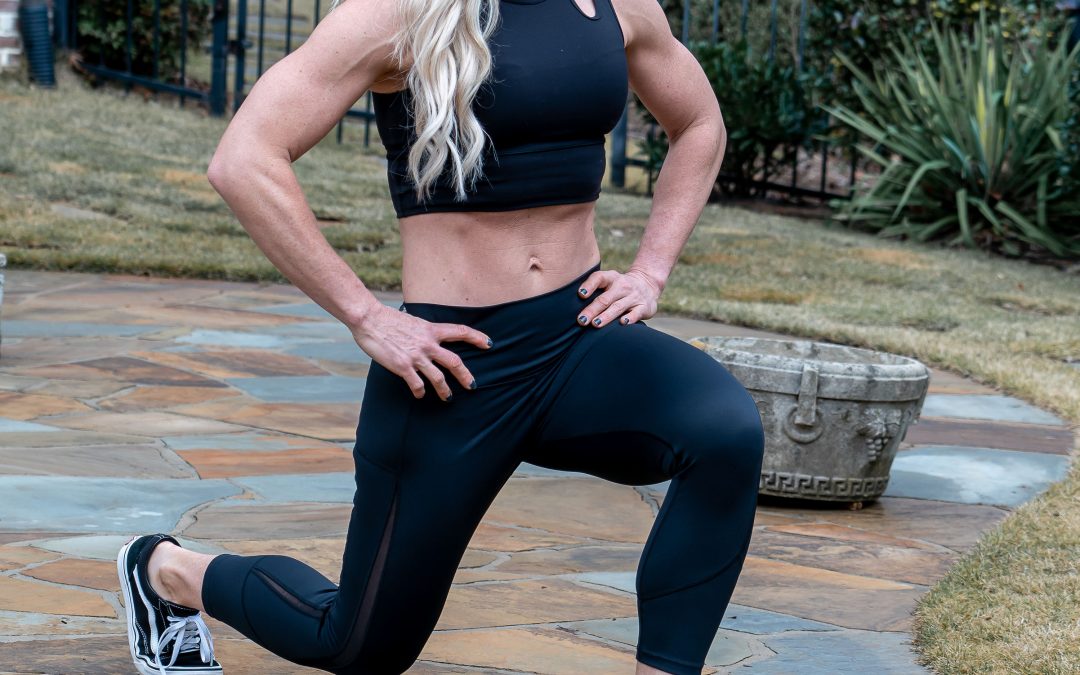If you’ve ever tried dropping weight by drastically cutting calories and exercising like a fiend, welcome to the club. Lots of us do it. From juice detoxes to cayenne pepper and lemon water, even Beyonce got caught up in the trend that keeps us hooked.
I get it, some are quick to promote the benefits of intermittent fasting, 24 hour water diets and hot sauna tents but looking at the science behind these trends, several detrimental side effects have popped up when cutting calories too fast.
Among the terror include things like:
- muscle loss
- strength loss
- depression
- hormonal imbalance (women losing their periods, lowered testosterone in men)
- significant drop in energy and motivation levels
- decreased sex drive
In my opinion, I think mainstream media focuses on the “old school and outdated system” which is to eat LESS and exercise MORE.
This is what will happen if you take on that approach.
- Loss of muscle mass
- Slower metabolic rate
- Mood swings
- Decreased energy
- Increased cravings

So why do we still do it? Because we’re a quick-fix society, looking for the instant gratification hit rather than the long term benefit. What if I told you there might be some long term ramifications to this method, might you change your mind? Perhaps.
Here’s what you need to know about your metabolism, especially if you’re interested in not regaining your weight after a brief bout with dieting.
First, when you lose muscle, your resting metabolic rate will, inevitably, slow down. Second, when you eat less your metabolism starts to adapt.
Let’s say Sarah is eating the typical 2200 calorie a day diet and she’s now ready to drop some body fat. Sarah decides to log into My Fitness Pal and plug in a 2-pound a week drop, putting her calories around 1300.
Before we even start with the physiology, Sarah is screwed. She’s throwing her system for a loop with her 900 calorie drop and she’s going to be VERY hungry and crabby. She might struggle with concentration due to the significant drop in her calories and she’ll start to experience less caloric burn because of her decreased calorie intake.
Listen, I get there’s a time and place to cut back calories now and again, but when it’s done for prolonged periods of time (anything over 12 weeks) you’re bound to have some negative consequences to your hormones and metabolism.
Is there a better way?? I’m SO glad you asked. 🙂
I don’t know about you, but FAT LOSS is much more important than WEIGHT LOSS. Sure, you can lose weight (water, muscle tissue, fat) but wouldn’t you want to lose FAT more than anything else?
Let’s get set for a more specific goal, shall we? How about shedding ONE type of weight, while protecting your muscle tissue and metabolism, sounds good right?
- It starts with your macronutrients. I’ll be the first to admit, I have no clue how to do macros (protein, fat and carbs) and never really cared to learn, but what I do know is the importance of hitting all your macronutrients. Not only for optimal fat loss to occur, but to improve body composition, hit higher performance goals and more. The #1 game changer of them all? Protein knocks the rest out of the park.
Studies show over and over the diets that have a higher percentage of protein, around 30%, which is double compared to the average American diet, tend to stick the longest. Why? Because protein requires a lot more energy to digest than any of the other macronutrients. A variety of studies show protein to be more filling and satisfying, leaving you fuller in between meals. Yeah!
Therefore, it’s time to get your protein on! One of the greatest benefits of adequate protein is you can maintain your muscle WHILE losing fat. Bam! My clients who eat more protein throughout the day produce better physique results and hold more muscle mass than those whose diets are higher in carbs and fat.
Personally, I believe you can play around with your carbs and fats as long as your protein needs are met. Again, aiming for around 30% of your total calorie intake coming from protein. Quite honestly, I think lower-fat diets are much harder to maintain, especially for females since we need enough essential fat to keep our hormones functioning optimally. Nor, do I think low carb diets make much sense, especially since I have the majority of my clients lifting heavy weight and using a lot of energy.
Let’s break it down even further……
How many carbs and fat grams do you really need? Quite honestly, it completely depends on how active you are, age, weight, height, etc. but here are some basic parameters to consider.
First, I hate anything LOW FAT. Let me say that one more time, I hate anything LOW FAT. Remember a few decades ago Snackwell’s and Tabs were the hot commodity? In fact, I’d rather you eat a normal cookie with the butter and sugar rather than a dried low fat cardboard cracker. At least with the normal version your body can use the sugar as energy and the fat to produce hormones.
If we peel back the onion a bit and look deeper into the science of FAT, to no one’s surprise, trans fat comes back the worst and those who ate the most of were prone to heart disease. (Think trans fats in donuts, fake food products— an altered fat using a process called hydrogenation)
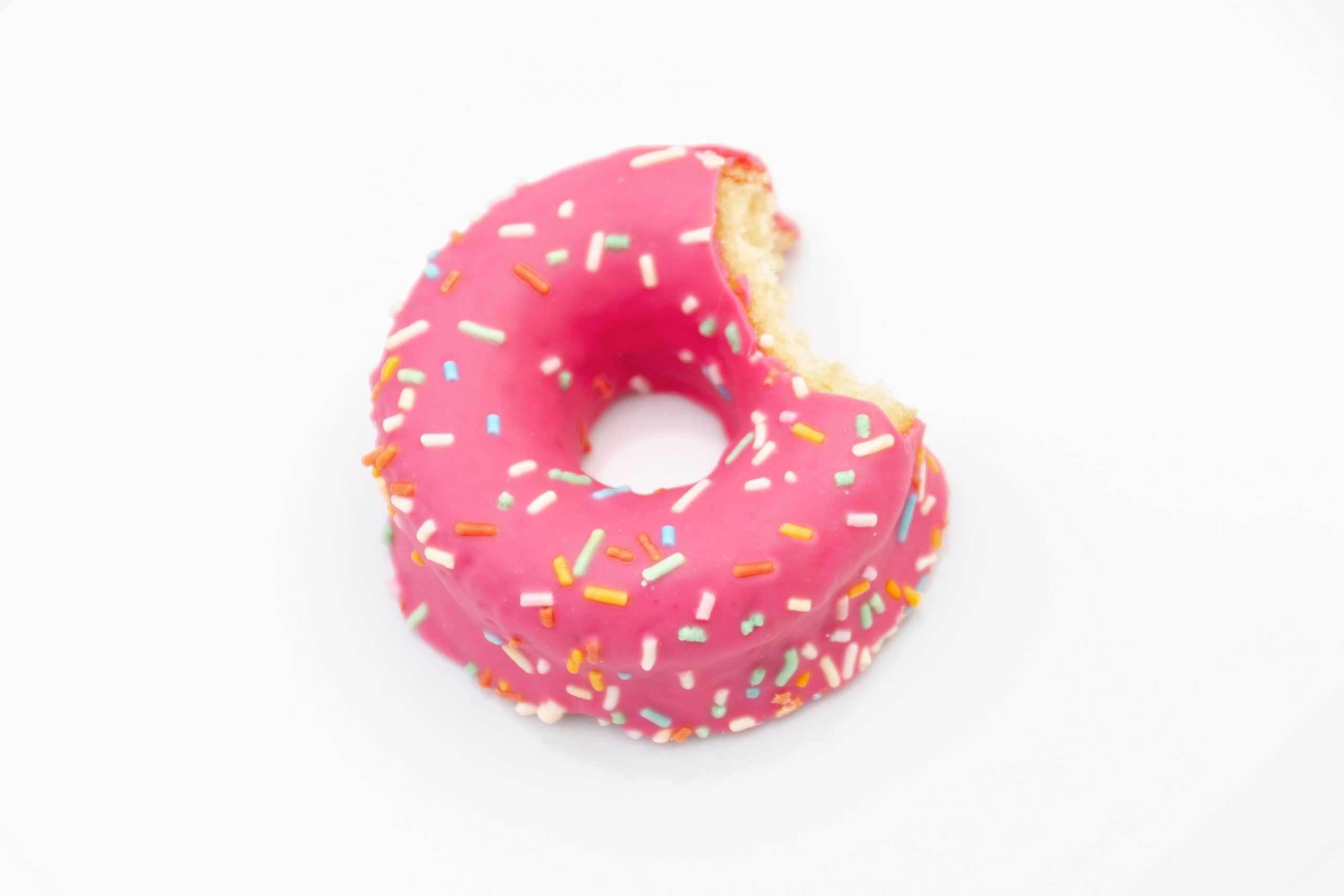
Remember all hormones come from fat so an unhealthy diet or low fat diet can make your symptoms MUCH WORSE. Your body needs enough healthy fats to keep your hormones revving, inflammation down and brain functioning at peak capacity.
Throw in a ton of processed, high-starchy, sugary foods and you’re more prone to blood sugar imbalance, wonky hormone levels and fatigue so you’re better off with the unprocessed starches like: sweet potatoes, quinoa, corn, rice, (I actually love white rice after a workout), amaranth, oats, etc.
For your fats, implement healthy ones to feel your best. Avocados, nuts, seeds, oils, (skip the vegetable, safflower, sunflower, corn, peanut, canola and soybean) salmon and omega-3 fatty acids to keep your inflammation down to a minimum.
2. Your hormones/metabolism matter. If we take a step back, most of us grew up in a generation where skinny was the new healthy and emaciation was the new normal. (Hello Kate Moss). So do me a favor and try to put those images out of your head, they’re not doing you any favors.
Secondly, your reproductive hormones are incredibly sensitive to how you eat. Not eating enough fat? Your hormones might suffer. Not eating enough carbs? Your thyroid will take a hit.
In a nutshell, if you’re under-eating, not only are you hindering your reproductive hormones, you’re also disrupting your body chemistry, that, ironically, interacts with your metabolism/hormones. This is exactly why so many diets fail time and time again, starving, (yes, even at 1200 calories) can cause a metabolic disaster.
Haven’t you noticed once you quit your diet, your weight rebounds and you find you’re carrying more fat than before you dieted?
I’ve even had some of my female athletes cutting calories prior to working with me and many of them experienced: loss of their menstrual cycle, stress fractures, mood swings and a decreased desire to perform in their sport. These are all clear tell-tale signs of low estrogen.
LADIES, YOU NEED YOUR PERIOD.
Maybe you’re wondering what other hormones are affected when you’re trying to slash your calories and exercise more, yeah?
Here are 4 main hormones that take a beating when you’re malnourished and overexercising.
- CORTISOL. A stress hormone and no, it’s not the bad, horrible monster many make it out to be. If we didn’t have cortisol, we’d be dead and here’s what I can tell you. My athletes or clients who push their bodies to the max often suffer from low cortisol, and trust me this isn’t a fun place to be. Symptoms include: weight gain, major fatigue, lack of motivation, decreased muscle mass and low sex drive.
Here’s what you need to know about CORTISOL. You want just the right amount. Not too much, not too little and when you’re undereating, the last thing you want is elevated cortisol levels. Cortisol strips your muscles of essential protein and turns it into sugar as energy.
This is exactly why CORTISOL is linked to higher blood sugar (look at your fasting glucose on your labs and you will see the number could be elevated from high stress and cortisol), a suppressed immune system and higher blood pressure.
- YOUR THYROID. Your thyroid is literally the mother of your metabolism and is a butterfly-shaped gland in the front of the neck. It produces hormones that control the speed of your metabolism — the system that helps your body use energy. One way to know if you’re struggling with a low thyroid is if you’re cold after you eat. You can tell a lot about your thyroid based off your body temperature.
Also, when you’re undereating and over exercising you’re more prone to a suppression of your T3, which is your metabolically active thyroid hormone. If you’re trying to drop fat, lean out and build muscle, this is not one you want mess with. A lowered T3 means an increase in body fat, slower metabolic rate and mood imbalances.
Elevated stress interferes with the conversion of T4 to T3, lowering overall T3 levels as mentioned above. Elevated cortisol levels also drive up the production of rT3 and reduces the cell receptor sensitivity to the thyroid hormone. The combination of decreased T4 & T3, along with an increase of rT3, puts the brakes on metabolic function. (Hormone Blueprint, p.36. S.Miller)
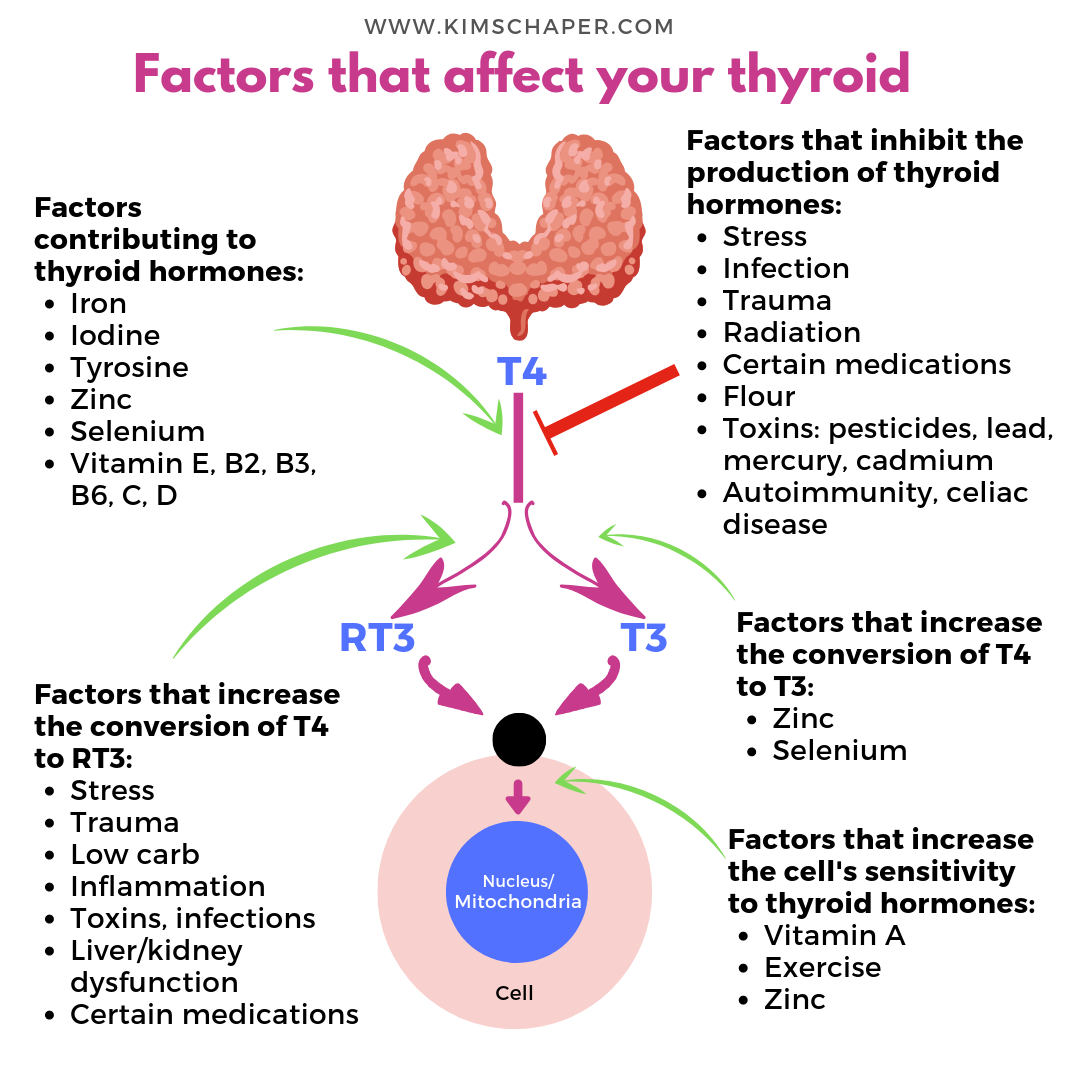
Above are some other key factors that can affect your thyroid. As you can see, stress is closely related to the triggers that increase the conversion of T4–>RT3 and can inhibit the production of your thyroid hormone.
I always recommend my clients get a full thyroid panel to access their present thyroid production, especially if they’re dealing with a low body temperature, cold hands and feet, loss of hair, constipation and weight gain.
- LEPTIN. My guess is you’re pretty familiar with leptin/ghrelin which are your “hunger hormones” that dictate your internal hunger/fullness cues. Leptin, is a hormone made by your fat cells and when in check, leptin decreases your appetite. Ghrelin, on the other hand is your hormone that increases your appetite.
- Lack of sleep and excessive sugar/carbohydrates increase your ghrelin receptors and can lead to insulin resistance. When you’re constantly yo-yo dieting and your levels of ghrelin and leptin are disrupted, your ability to eat when you are truly hungry and stop when you’re full can become severely compromised.
- LUTEINIZING HORMONE. This hormone in females is responsible for triggering ovulation and when your body is underfed, your sex hormones are one of the first things to go. Think about it from an evolutionary stand point…..it makes no sense for your body to get pregnant or produce sex hormones during a period which starvation is present. Your body is going to shift its priorities elsewhere.
Your body is in a state of survival and will compensate as needed. From fueling your brain to protecting your internal organs rather than using the precious energy reserves to care for an offspring, bye bye sexual desire.
When it comes to your hormones and metabolism, you have to look at your stress inventory. Look at where you can pull stress off the body in one area so you can have more energy in another. Dieting and over exercise is a stressor, don’t forget that and so is overeating and lack of movement. On the flip side, you’ll struggle with potential insulin issues, sometimes leading to type II diabetes.
It’s all about the balance.
3. Supplementation can fill the gaps. In addition to self-care practices like walking in nature, yoga, meditation, acupuncture, etc. I’d also consider taking additional supplementation if you’re active and stressed.
Below are some of my favorites:
- Probiotics. I do think you can get a vast variety of probiotics and healthy bacteria from your foods if you’re eating things like Kimchi, fermented veggies, sauerkraut, miso, tempeh. However, with our food industry constantly changing, I still like to keep a probiotic in the mix to make sure you’re getting as many strands as possible. I also find probiotics help your gut optimize the nutrients from the food you eat and can keep your hormones happy. I recommend taking at least 40 billion CFU’s daily with several different strands of bacteria. Personally, I like this one because it’s high in CFU’s and has over 15 different bacteria strands. I take 2 a day.
- Vitamin D. Did you know this is a fat-soluble vitamin that acts like a hormone inside your body and helps keep your depression and inflammation down? Pretty cool, huh? It’s a natural mood booster, will give you a dose of energy and keeps your immune system in tip-top shape. I think women should take around 3,000-5,000IU’s a day (5,000 in the winter time). Make sure you take it with K2, as it absorbs better in your system when the 2 are combined.I use this one daily.
- Magnesium. Did you know over 80% of women are deficient in magnesium? Crazy right? When you’re lacking mag, you’re more prone to anxiety, depression, leg cramps, fatigue and weakness. I recommend my clients take around 200mg/daily of a high-quality magnesium supplement, especially if they need a bit of thyroid support and a better night’s rest. I like this one.
- Amino Acids. This is a biggie and often overlooked by many health-care providers if their patients are struggling with mood disorders, anxiety and concentration issues. Amino acids are precursors to your brain chemicals and are essential for support as they directly interact with the hormones in your body. This is why I see many vegans suffer with depression since most of your amino acid requirements come from animal products like beef, chicken, whey protein and eggs. My favorite protein powder on the market is called BiPro. It has all the essential aminos and it has L-Leucine which is my favorite amino acid to take post-workout for muscle recovery and lean muscle building.
4. Strength-training should be the bulk of your workout schedule. Everyone wants to know how to get lean and while it’s not one thing, there is one thing that should be a non-negotiable if you’re looking to change your body. Strength training. I’m not talking about the 2-3 pound weights for months on end. I’m talking about the basics of a proper strength-training protocol and doing it the right way, not throwing the weights around and running around like a circus act. It’s about being intentional with your breath, pace, weight, reps and structure to get the most bang for your buck.
I shared this picture on my Instagram a bit ago to show you the difference of what consistent and proper strength training will do for a physique. I was over eating on the left but I wasn’t lifting a pound of weight back in my 20’s and now in my 40’s the iron is my bread and butter and what I do most to stay healthy and fit.
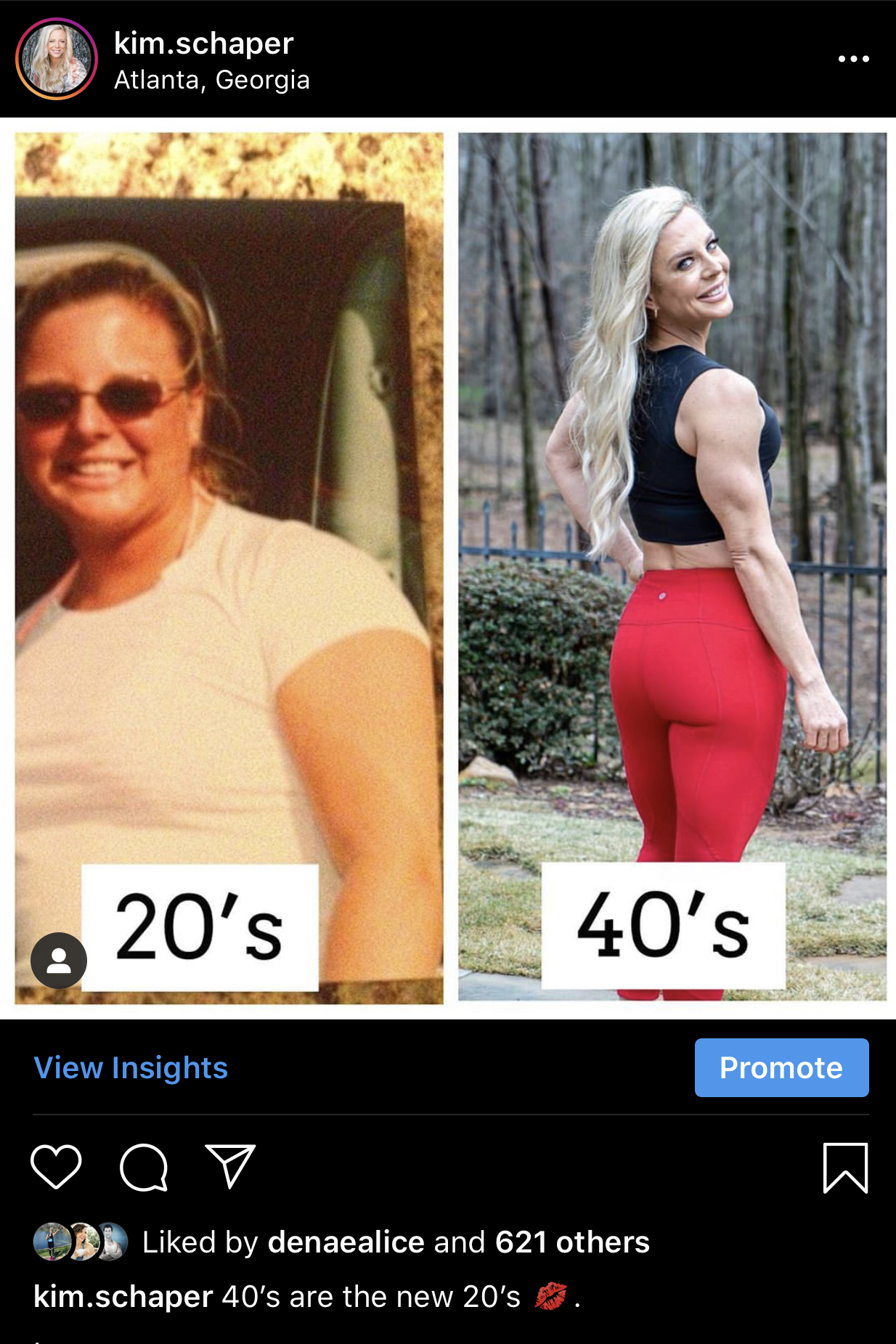
I can tell you, coming from an eating disordered background, strength training saved my life. Ladies, I can tell you, there’s nothing better than feeling strong, confident and happy in your body and I wholeheartedly believe it comes from lifting, not running yourself into the ground to stay small.
I encourage you to keep it simple and focus on the 7 foundational movements for proper body mechanics, composition, alignment and injury prevention.
If strength training isn’t for you, that’s totally cool, I just believe you HAVE to move your body to reduce your stress, balance your hormones, increase your energy and boost your mood.
I want you to go back and think about the times you were highly stressed, what did you find was one of the first things to go? Yourself or your exercise routine, right? Maybe you were someone who believed in the excuses of, “I don’t have the time anymore” or “I’m exhausted all the time”. I hear you, and guess what? The reality is most of us are wayyyyy more stressed, exhausted, moody and depressed from NOT exercising. Your body is meant to move.
So what about for those of you who enjoy doing, say, a bit too much? :). Try not to get too cocky there, as too much exercise can actually backfire in your face.
Just like anything in extreme, exercise can stall your goals and create more stress than necessary if done incorrectly, especially if you’re someone who’s under-eating at the same time.
Listen, we’re a go-getter society. Work hard, play hard, push hard, and sometimes not allowing our bodies to recover and replenish to optimize our training routine is a dead end road. I work with a ton of clients who deal with “adrenal fatigue” the term coined for HPA axis dysregulation which is when your body stops responding to stress appropriately, and this can be from exercise too.
Remember, exercise is a stressor and your body doesn’t understand the difference between high intensity exercise or sprinting from a lion, all it knows is it’s stressed.
Here’s the best way to gauge if you’re training too hard…….
If you’re exhausted after a workout or find yourself needing a nap for the next 2-3 days, you’ve done too much. Dial it back so you’re not further in the hole.
I currently have a client who’s a very high achiever. She’s in Law School at Stanford, competes in long distance Triathlons at a professional level and has a hard time sleeping. You know where I’m going with this. Her adrenals are in the tank. I’m not going to go into too much detail here but I was constantly battling with her on managing her stress levels, cutting back on her 2 a day training schedules and finding other ways to get a good night’s sleep.
We recently had her hormones tested, and sure enough her cortisol was non-existent. This is what happens when you continue to push your body, ignore the symptoms and your adrenal function is compromised.
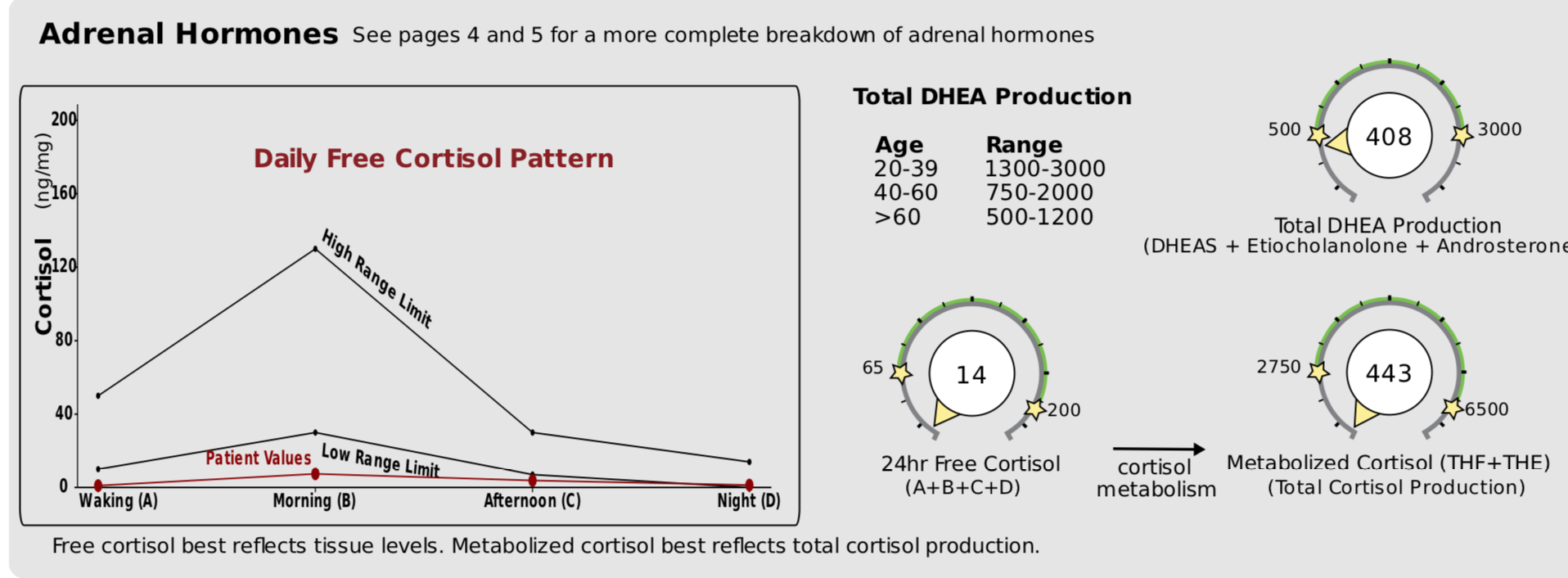
Curious if you think you’re dealing with low adrenal function and have symptoms like weight gain, fatigue, insomnia, mild depression, mood swings, blood sugar instability and salt cravings?
Here are a few things I recommend to help treat your hormonal imbalances:
- Walking in nature
- Yoga or restorative type movement
- Adaptogens (adrenal support)
- Removing the the stressors from your life and reevaluating your triggers
- Addressing your past or present trauma
- Work with a qualified wellness coach and functional medicine doctor (I can help! :))
5. Sex. A healthy sex drive is preeminent to looking younger, feeling sexier and enjoying life. I always kid with my clients when they moan about getting in the sack.
“I see sex like exercise.” I tell them. “You dread doing it, once you start, it’s not so bad, during it you feel great and when it’s done you ask yourself, why don’t I do that more often?”
Here’s the thing though, most women have no idea that achieving an orgasm through sex or masterbation releases hormones which improve how our entire body functions.
Most women dread sex because they’re exhausted and it’s one more thing to add to their list. Excessive stress and the demands of life put a damper on our adrenal glands which decrease our sex drive and create a less than optimal environment for desire. Not to mention, your adrenal glands are the very things that pump up your libido and if you’re exhausted and tired, the last thing you want is to jump in the sack for a romp session.
Did you know orgasms are one of the BEST stress relievers on the market? But, the MOST COMMON reason why women can’t achieve an orgasm is……you probably guessed it, STRESS.
Sex studies for both men and women continue to prove sex helps release hormones that help regulate our stress levels. Not only does it help relieve stress, but it helps women release the wonderful love hormone….Oxytocin. This beautiful hormone makes us happy, calm, less depressed, creates lasting bonds (even with mothers and infants) and starves off anxiety to feel our best.
Orgasms also release another powerful brain chemical, dopamine. Dopamine is a heavy-hitter and we get our fix from things like sex, food, exercise and adrenaline rushes. Overall, the BIG O’s can instantly relax the nervous system, taking us out of the common fight/flight mentality and immediately into a parasympathetic state (rest and digest) which our system craves.
Lemme cut to the chase……SEX IS GREAT FOR YOUR HEALTH.
When you climax, your body releases chemicals called endorphins (what you release during exercise) and they make you feel amazing. An orgasm is basically like an antidepressant but without all the crazy side effects and daily pill popping.
Here are a few foods that can help boost your sex drive:
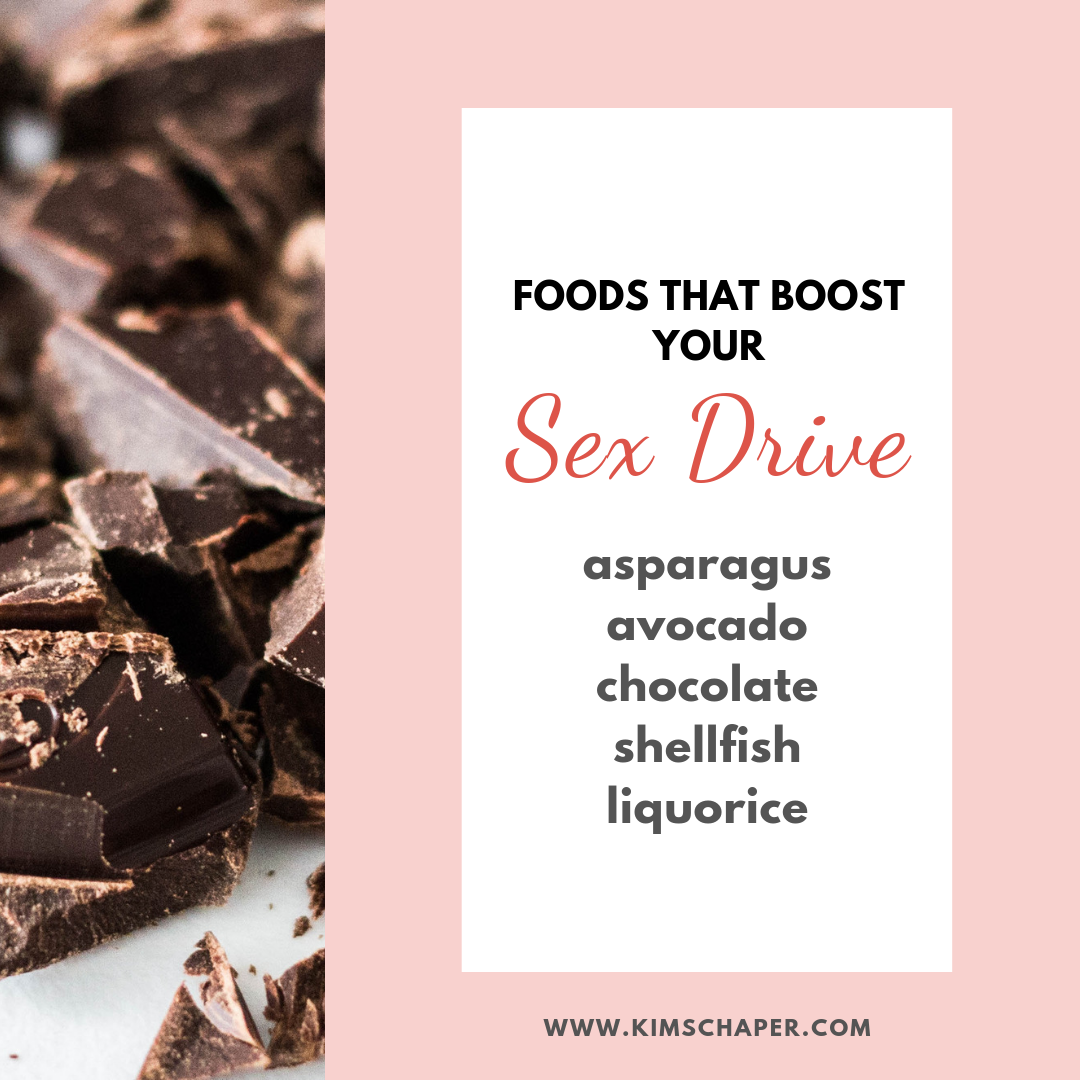
Finally, if you’ve done all the things to try and achieve an orgasm and it’s they’re just not cutting it, you very well might be dealing with hormone imbalances, specifically testosterone. Testosterone is essential for orgasms and a healthy sex drive.
Other hormones that can contribute to a low sex drive can be estrogen and a low functioning thyroid and if you’re on birth control or an antidepressant, sometimes these can cause a decline in your sex drive. My team will often give my clients some dosages of natural progesterone and testosterone if needed to boost the bedroom time and have you feeling better with less effort.
6. Sleep. You know I was going to bring up this one! Sleep is paramount for a high quality life! Sleep not only makes you feel better, it can help contribute to a decrease in belly fat, high cortisol and regulate your leptin/ghrelin (hunger/fulness) levels.
Research shows lack of sleep, even just a few hours, can throw off your body’s natural satiety cues leading to an increase in hunger (often an additional 500 calories a day) levels. Crazy right? I know it’s hard to get quality shut eye but I highly encourage you to create some sort of sleep hygiene schedule to optimize your bedtime and balance your hormone levels.
Things like blue-light blockers, I’m obsessed with these, I wear them every night.
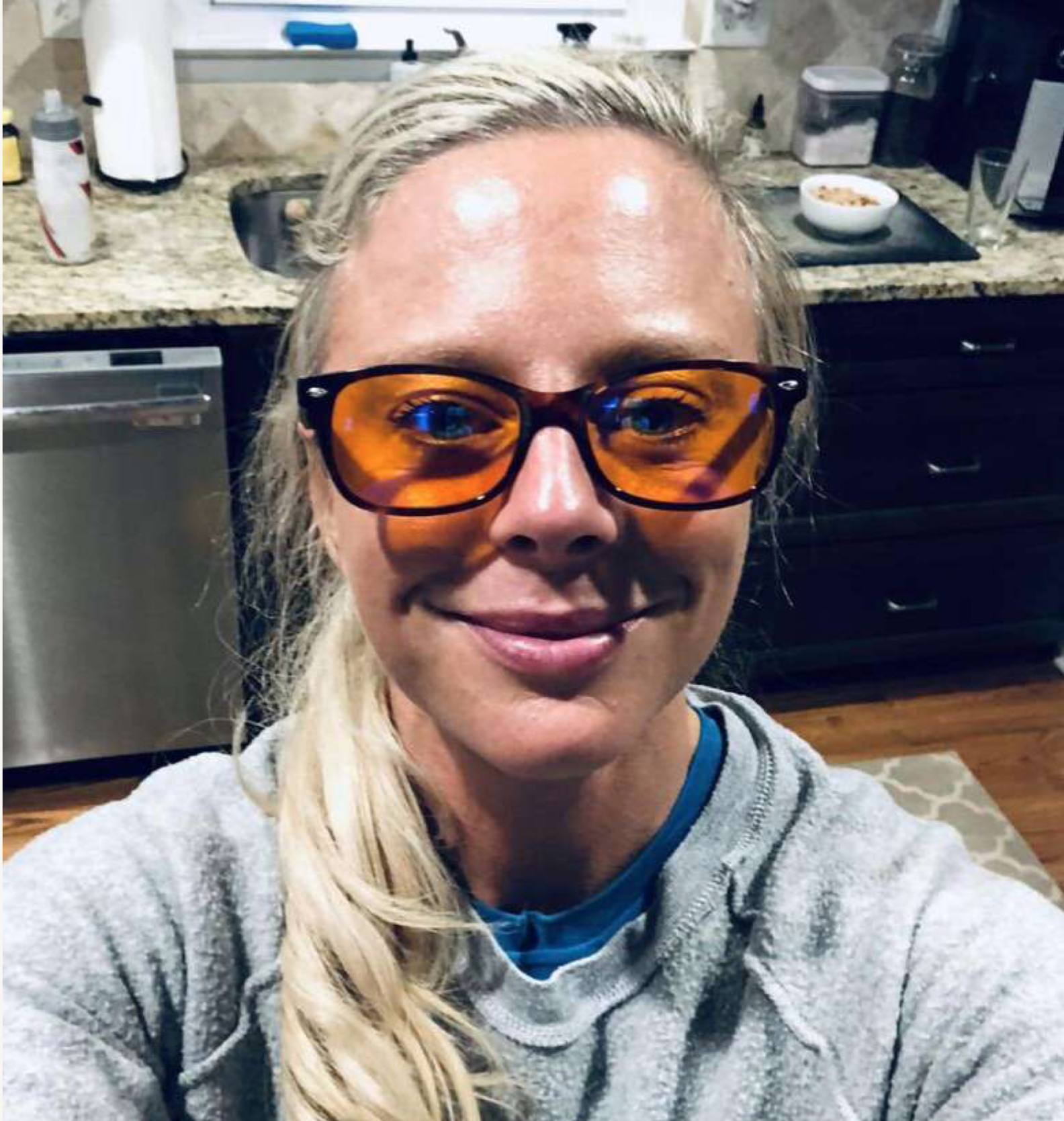
I also make sure to unwind and tuck away my electronics (yes, this includes your iPhone, computer, tablet, etc.) about an hour before bedtime. If I can’t and need to work I definitely make sure to wear my blue light blockers to help with melatonin production. Another tip is sleepy time tea. The calming herbs in this warm substance can relax just about anyone, give it a go, you can find it at any local grocery store in the tea section.
I hope you found this blog useful and feel packed with some golden nuggets and take aways. It’s not just about dieting and exercising to get the body and life you want. You have to be willing to look at the entire picture and optimizing your health isn’t just from ONE thing. My suggestion would be start with one or two things you can start implementing right now and then once you’ve mastered those, add a few more to the mix.
If you’re in need of additional support, guidance and clarity, and how to treat hormonal imbalance, feel free to reach out and we can see if my team and I can help you fast track your health and physique goals. As I always say, it often takes a village which is why I also have a handful of professionals I use for myself so I can look/feel my best as well.
Fatigue, depression, anxiety, weight gain, bloating, fatigue, insomnia, low libido are all real things. Don’t let your doctor tell you otherwise. You know where to find me and if you’re ready to jump in and see how we can help you, feel free to fill out an application here to see if we’re a good fit or you can grab my Happy and Healthy Hormones Handbook for 20% off here!
Kim 🙂
P.S. Do you follow me on Instagram?

